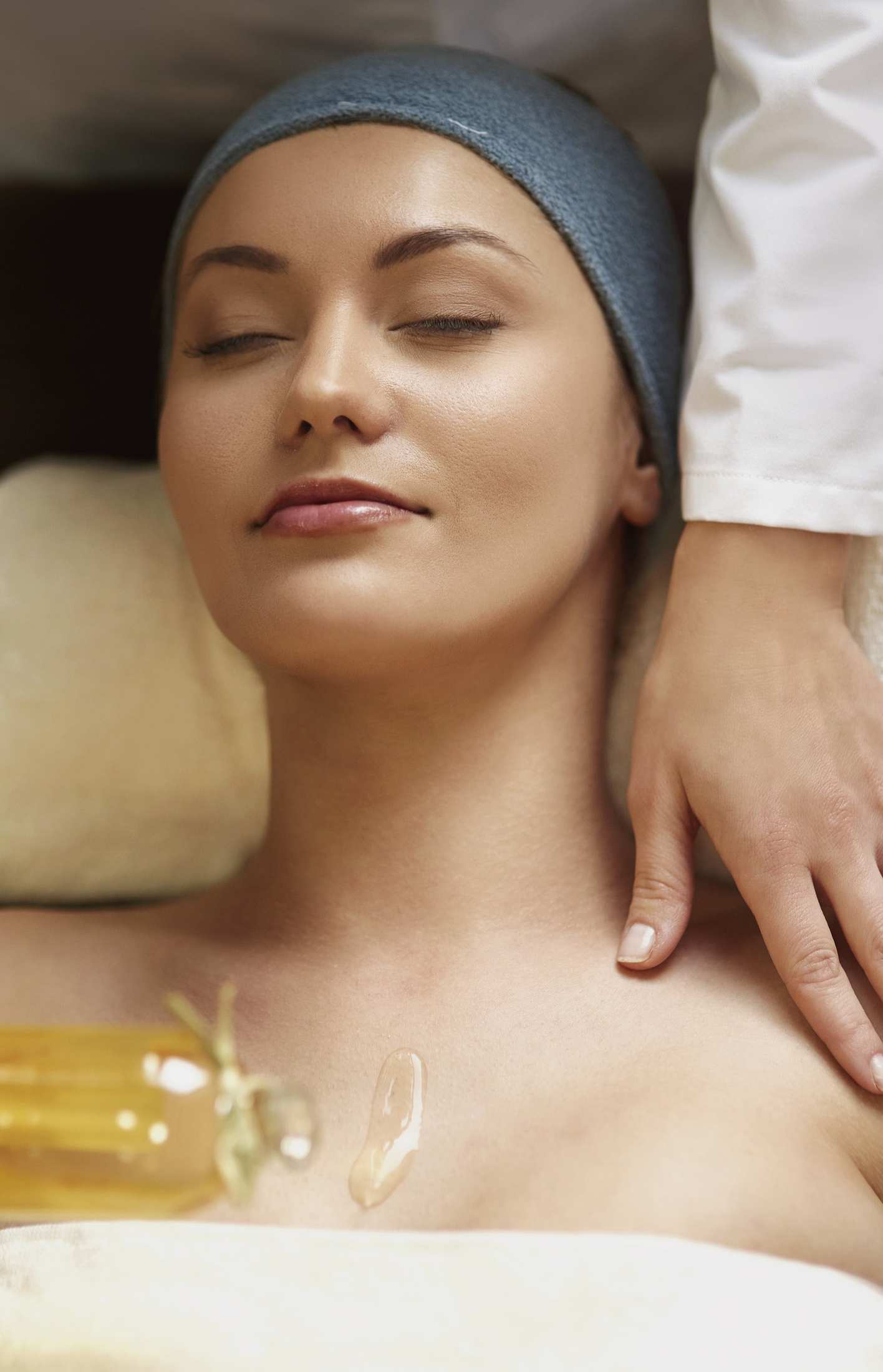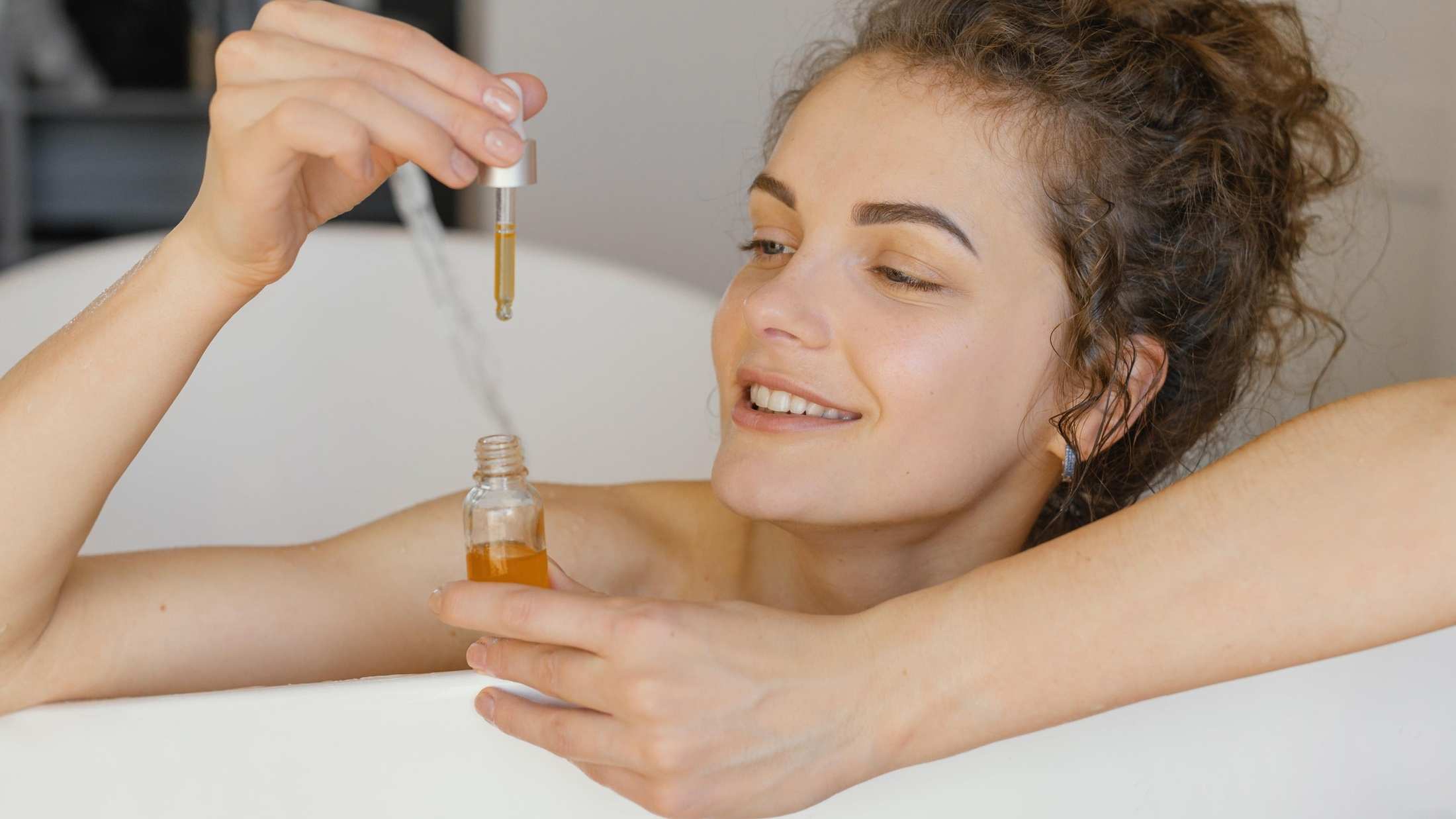Bergamot Essential Oil: Benefits and Uses


It comes from Bergamo, a small town in Calabria, southern Italy. Today, more than 90% production of bergamot is obtained from this region. However, it is now growing all over the world. This essential oil is trendy and has various applications due to its health benefits and effectiveness. It is also a staple in aromatherapy.

Visit the Welzo information page for more information about bergamot, its mechanism of action, benefits and side effects.
Bergamot oil boosts a wealth of pharmacologically active ingredients responsible for health benefits. These include;
Limonene: It has antioxidant, stimulant, detoxification, neuroprotective and appetite suppressant properties and is used as flavouring. It is effective for cancer, obesity and bronchitis, although little scientific evidence is available.
Linalool: It is an anti-inflammatory, antidepressant and sedative compound. It is colourless yet has a pleasant odour.
Linalyl acetate: It is an astringent, antibacterial, analgesic, anti-inflammatory and hypotensive agent. It’s small amount is added to the foods to improve the odour and taste.
Nerol: It is a sedative, antioxidant, antidepressant and anti-inflammatory compound. It is a colourless alcohol with a strong, sweet rose odour that is very popular in perfumery as a freshener.
Terpineol: It is a terpene alcohol that has antifungal, anti-inflammatory, anti-nociceptive (pain-reducing), antiulcer, antihypertensive, anticonvulsant, anticancer, antioxidant and antibacterial properties.
Beta-Pinene: It is a colourless liquid with a woody-green pine-like scent. It has antiseptic, anti-inflammatory, bronchodilator and expectorant properties.
Myrcene: It is a monoterpene and is used as an aroma and flavouring agent. It has soothing, antibiotic, analgesic and anti-inflammatory properties.
Geraniol acetate is a colourless liquid with a pleasant fruity rose or floral aroma. It has diuretic, stimulant, antibiotic, antiviral, antifungal and antiseptic properties.
Geraniol: It is an alcohol used in cosmetics, food and fragrance energy. It has analgesic, antiseptic, antibacterial and antioxidant properties.
Beta-bisabolene is a natural compound with antifungal, antioxidant and antibacterial properties. It has a balsamic odour and is used as a food additive.
Bergapten: It is a natural compound used in dermatology to treat conditions like mycosis fungoides, vitiligo and psoriasis. It is a strong irritant that must be diluted with a carrier oil.
Due to this hugely beneficial ingredient profile, bergamot oil has enormous healthcare applications.
When used for aromatherapy, bergamot oil alleviates stress and anxiety, the major symptoms of depression. Limonene and alpha-pinene, the two primary ingredients are stimulants that freshen the body and boost the energy levels. Inhalation of the bergamot oil boosts the metabolism by increasing the levels of hormones that cause the digestion and absorption of nutrients. According to professor Xuesheng Han and colleagues, the inhalation of BEO causes positive feelings in the patients receiving treatment at a mental healthcare centre.
Bergamot essential oil is not the only essential oil suitable for aromatherapy. Read our informative article to learn more about the Best Essential Oils for Relaxation and Stress Relief.
Bergamot oil lowers the risk of constipation and other digestive disorders by facilitating the regularity of bowel movements. Research on the isolated gut tissues of the rats in 2022 concluded that BEO inhibits the contractions in the digestive system that cause pain during various digestive conditions like irritable bowel syndrome (IBS).

Its soothing and relaxing aroma is sedative and promotes deep and healthy sleep. The inhalation of this oil before going to bed helps in sleeping disorders like insomnia by promoting a peaceful state. The fruity, citrusy and floral fragrance makes it a refreshing and soothing room spray to freshen the stale air and remove noxious odours.
A study published in Turkey in 2024 reported a significant increase in the sleep quality score following inhalation of bergamot and lavender oil.
The use of Bergamot oil in hair products improves the appearance and texture of hair even after a few weeks. It reduces hair loss, causes hair regrowth, improves hair sheen and leaves a pleasant light scent. Different methods are adding a few drops to the shampoo or mixing it with a carrier oil for scalp massage.
An earlier study by Professor Lin-Xiang Shao (Zhejiang Normal University, Zhejiang, China) concluded that a regular application of bergamot extract for 42 consecutive days resulted in a significant improvement in hair growth.
Welzo offers GreenFrog Botanic Natural Shampoo, which is a blend of verbena and bergamot. It hydrates, nourishes and deep cleanses the skin. Visit the page to order it now.
Various properties of bergamot essential oil boost skin health. These are;
A natural disinfectant and antiseptic: The topical application or use in skincare products causes disinfection and prevents the growth of harmful bacteria on the skin. Its use in soap and bath water protects the skin from infections and relieves cracks on heels and skin.
Balancing the sebum production in the skin: It is an effective wound healer that balances the oil production in the skin and evens out the skin tone, reducing the appearance of scars and unwarranted marks.
Natural deodorant: It is a natural deodorant and kills the bacteria responsible for body odours.
Antioxidant functions: It is rich in antioxidants, which protect the skin from free radical-associated damage, which is the leading cause of premature ageing. Its antioxidant potential ensures a radiant and youthful complexion.
Welzo offers GreenFrog Botanic Natural Shower Gel, a combination of Verbena and Bergamot. It cleanses and nourishes the skin, leaving it smooth and soft. Visit the page for more information and buy it.
The antispasmodic and analgesic properties of bergamot essential oil make it highly useful for massage therapy. It is highly effective in relieving muscle cramps and aches. Mixing it with a skin-friendly carrier oil, e.g., almond or jojoba oil, creates a deeply relaxing and uplifting massage experience.

It is loaded with antioxidants that influence lipid metabolism to lower the levels of bad cholesterol and total lipids. The regular use of bergamot essential oil is very effective in reducing LDL cholesterol, total cholesterol, and cholesterol levels in hypercholesterolemia patients, according to Jeremy J. Johnson, PharmD, PhD.
Another study in 2015 by Professor Rosaria Vincenza Giglio and colleagues noted that different flavonoids in the bergamot essential oil lower lipid levels.
Different antibacterial compounds in the bergamot oil destroy the germs responsible for food-borne illnesses. A review by Akash Maurya and colleagues explored the potential of bergamot oil and other essential oils to protect from various food-borne illnesses. They stressed the need to examine this potential due to the rapidly emerging issue of antibiotic resistance.
Its anti-fungal properties protect from the toxins produced by fungi.
Bergamot essential oil has medicinal properties that boost overall health and well-being. These are;
An effective febrifuge: It works as a febrifuge, which helps the body fight against infections that cause fever.
Regulation of body temperature: It promotes perspiration, lowering the body temperature and removing toxins through glands and pores.
Healthier skin: It promotes faster healing in skin conditions like eczema and wounds by preventing the growth and proliferation of bacteria and the entry of new germs into the scars.
Respiratory comfort: It has antispasmodic properties and helps people suffering from chronic respiratory illnesses, e.g., chronic cough and convulsions associated with a coughing fit. It is expectorant and anti-congestive and promotes easier breathing by loosening the mucus and phlegm and clearing the nasal passages.
Pain reliever: Its inhalation stimulates the secretion of enzymes that reduce sprains, muscle pains and headaches.
Different carrier and essential oils have their benefits. Pure essential oils are unsafe to use as they are highly irritant and can damage the skin. It is thus necessary to mix an essential oil with a milder carrier oil. The most familiar carrier oils are sweet almond oil, coconut oil, jojoba oil, grapeseed oil, olive oil, argan oil, avocado oil and sunflower oil.
The bergamot oil is mixed with different carriers and essential oils according to the need and likeness. Some effective combinations are:
Chamomile oil: It has mood-elevating effects and soothes irritated skin.
Tea tree oil: It has antibacterial properties, fights against skin inflammation and acne, and soothes irritated skin.
Lavender oil is an excellent scent used in aromatherapy. It is commonly used in acne treatments and hair and skincare products.
A vital factor must be considered before mixing it with other oils. It has a powerful and overpowering scent that overpowers the scents of other oils but is short-lasting. If scent is desired, choose the oil with a long-lasting scent. Before using any oil combination, it is advised to test a small amount on the skin patch to see if any allergic reactions occur. Always use a carrier oil for dilution to protect the skin; the pure form of an essential oil is very strong for the skin.
Some retailers advocate a direct application. However, it is safe to dilute it with a carrier oil. It contains bergapten, an irritant that irritates the skin, particularly at higher doses.
Yes, it rejuvenates the scalp and exfoliates the dead skin cells on the scalp to reveal the underneath skin. This exfoliation opens the hair follicles on the scalp, causing thicker and stronger hair in the long run.
The bergamot essential oil has anti-ageing and anti-inflammatory properties and is used in many skincare products. It is very effective in treating hypopigmentation skin conditions like vitiligo.
Some people who use bergamot oil, particularly with food, experience side effects, e.g., heartburn, muscle cramps and dizziness. The ingesting of this oil causes a drop in blood glucose levels, and people with diabetes can develop deficient glucose levels.
The topical application of bergamot oil is unsafe and is not advised during pregnancy and breastfeeding. The information about the safety of oral intake during pregnancy is not fully available. To be safe, it is necessary to avoid using it unless it is discussed with the doctor.
Unsafe use causes side effects. These include skin inflammation, dizziness, stinging, muscle cramps, photosensitivity, nausea, heartburn and photodermatitis. The use must be stopped in case of side effects.
Yes, bergamot essential oil is a good tea flavouring. It is necessary to use food-grade oil and ask the manufacturer about it.
It has a pleasant and sunny citrus scent, and due to this scent, it is known as the 'prince of citrus'. Its aroma is sweet, rounded and refreshing, yet deep and complex at the same time. It resembles lime but with resinous, floral and herbal undertones.

Bergamot essential oil (BEO) is rich in natural ingredients that are beneficial for physical health and is used for cosmetic applications. It offers health benefits with a mild citrus scent. The research has found many health benefits of bergamot essential oil, e.g., boosting mood, lowering cholesterol levels and reducing pain and inflammation. However, diluting it with a carrier oil before use is necessary.
Some people develop allergic reactions and skin irritations. Due to the risk of photosensitivity, it is also not advised to leave it on the sun-exposed skin. The pure form is not suitable for skin application or swallowing.
Visit Welzo for personalised health advice and order the desired products.
Plus get the inside scoop on our latest content and updates in our monthly newsletter.